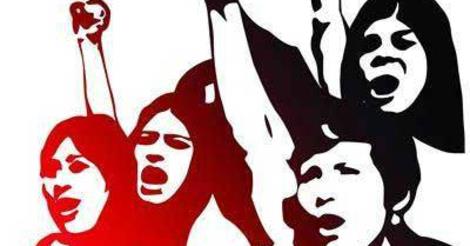Women’s Discrimination: Societal Behavior or Government Policies?
In the discourse on women’s discrimination, the argument surfaces that a pivotal factor lies in creating a women-friendly environment in Pakistan. This environment, it is believed, could propel women to excel in society by providing ample opportunities. However, the unfortunate reality is that the current setup lacks the necessary encouragement for women to actively participate in various organizations, thereby impeding their progress.
Women in Politics:
Shedding light on the political landscape, it is acknowledged that some women, such as Benazir Bhutto, have made significant strides in politics. Despite these success stories, a substantial number of women continue to face exploitation. The call to action resonates—society must pave a smooth path for women, and the government should actively implement policies that foster and encourage women’s participation in diverse sectors. Even with affirmative actions like the 2017 Act, mandating 5% representation for women in political parties, the male-dominated decision-making sectors remain a formidable hurdle.
Is Women’s Discrimination Exaggerated?
Diverging viewpoints emerge on whether women’s discrimination is exaggerated. While Pakistan boasts women-friendly policies, the crux of the issue lies in their effective implementation. The constitution and Islam provide a robust framework of rights, yet a prevalent lack of awareness among women hampers the realization of these rights. Affirmative actions in politics, like the 5% mandate, are deemed insufficient, contributing to the ongoing discrimination against women.
Women’s Ignorance and Male Dominance:
The paradox of having rights yet being given unattainable seats in politics is explored. Even when elected, women often find themselves devoid of decision-making authority. In authoritative positions, women are treated as objects, reminiscent of the traditional tribal system. These hindrances cast a shadow over the progress women could otherwise achieve in various sectors.
Women as Commodities:
The unsettling truth surfaces—women in Pakistan are often considered commodities, subjected to early and “Vani” marriages. Despite constituting half the population, women remain an untapped resource. The call to action is clear—providing opportunities and mentorship is imperative. It’s time to challenge societal norms that restrict women’s potential and relegate them to the status of commodities.
Do Women Have Fewer Opportunities, or Are They Accustomed to the Environment?
Navigating the complexities, the narrative explores the progress women have made in society, acknowledging regional challenges. In KPK, stereotypes and obstacles persist, creating an environment where women face unique challenges. Even with changing mentalities, unsafe job environments act as deterrents. While harassment laws exist, their inconsistent enforcement and some instances of exploitation underscore the need for a comprehensive revaluation.
Maternal Deaths, Early Marriages, and the Role of Men in Family Planning:
In a patriarchal society, the call for men to be more aware of pertinent issues becomes evident. Early marriages, often influenced by poverty, contribute to maternal deaths, necessitating a collective effort to eliminate this practice. The narrative underscores that men, as influential members of society, must play an active role in addressing these challenges and fostering family planning.
Traditional Education Curriculum and the Need for Sex Education:
Amidst the complexities of education, the discussion delves into the confusion surrounding the curriculum. Resistance to incorporating sex education reflects a broader societal hesitancy. Few schools daring to include sex education face backlash, exposing a societal reluctance to embrace comprehensive educational reforms. The underlying message echoes the need for a mental shift to accept and implement progressive changes in the education system.


